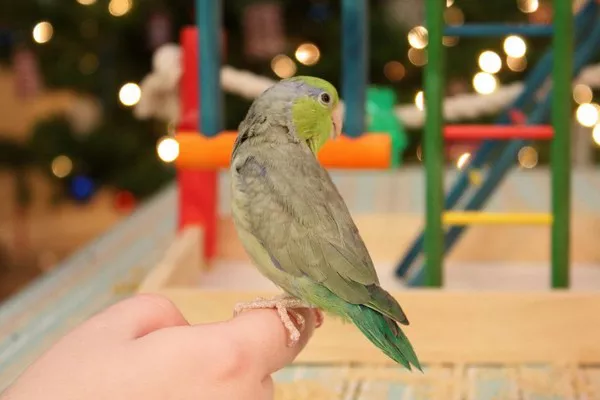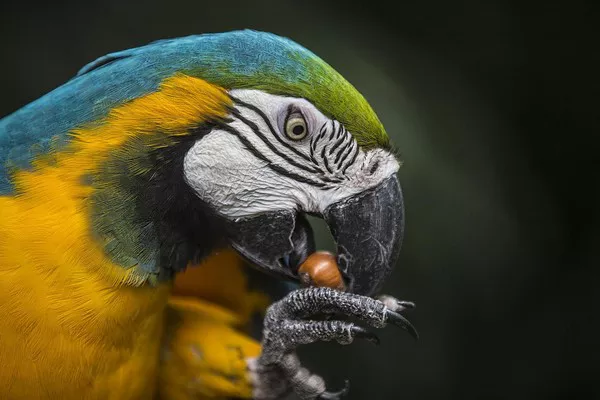Sun conures (Aratinga solstitialis) are vibrant, captivating birds known for their striking plumage and animated personalities. These small parrots, native to the northeastern regions of South America, are a popular choice for pet owners due to their vivid colors and engaging behaviors. However, one of the most talked-about traits of sun conures is their propensity to scream. This article delves into the reasons behind sun conures scream, exploring the breed’s characteristics, living habits, and the underlying causes of their vocalizations.
Introduction to Sun Conures
Sun conures, also known as sun parakeets, are medium-sized parrots that stand out with their brilliant yellow and orange feathers, accented with green and blue. Native to the coastal regions of northeastern Brazil, these birds are typically found in the wild in tropical rainforests and savannas. They are highly social and intelligent creatures, often seen in large, noisy flocks. Understanding their natural behaviors and environment provides a crucial foundation for interpreting their vocalizations.
Physical Characteristics
Adult sun conures are about 12 inches long from beak to tail. Their vibrant plumage is primarily yellow with orange and red highlights, while their wings and tail feathers exhibit shades of green and blue. This colorful appearance is not just for show; it plays a role in their social interactions and mating rituals. The bright colors are also a visual signal in their dense forest habitats, helping them stay visible to their flock members.
Social Structure
In the wild, sun conures live in large, noisy groups. These flocks can consist of up to 30 individuals and are known for their tight social bonds. They rely on vocalizations to communicate with each other, which is essential for maintaining group cohesion and coordinating activities such as foraging and roosting. This social structure and the need for constant communication are fundamental factors that contribute to their high noise levels.
Understanding Vocalizations
To comprehend why sun conures scream so much, it is essential to understand the purpose and nature of their vocalizations. Parrots, including sun conures, use a complex range of sounds to convey different messages, from alarm calls to mating signals.
Types of Vocalizations
Sun conures produce a variety of sounds, including whistles, squawks, and screams. Each vocalization serves a distinct purpose:
Alarm Calls: Loud, piercing calls that serve to alert the flock of potential predators or other threats. These calls are typically sharp and repetitive.
Contact Calls: Used to maintain contact with flock members. These are less intense but are frequent and can be somewhat loud.
Mating Calls: Used to attract a mate or establish dominance. These calls can be melodious and involve a range of pitches and rhythms.
Why They Scream
The most common reason for the screaming behavior in sun conures is their inherent need for social interaction and communication. In the wild, their vocalizations are a crucial part of their social structure. When kept as pets, these vocalizations can sometimes become exaggerated due to changes in their environment and social dynamics.
Environmental Factors Influencing Vocalizations
The environment in which sun conures are kept can significantly impact their vocal behavior. Understanding these factors can help in managing and potentially reducing excessive screaming.
Social Isolation
Sun conures are highly social birds that thrive on interaction with their flock. In captivity, a single sun conure may feel isolated and lonely, leading to increased vocalizations as a way of seeking attention or expressing distress. Social isolation can be mitigated by providing ample interaction, whether through human companionship or the presence of other birds.
Environmental Stimulation
A stimulating environment is crucial for sun conures’ well-being. Inadequate stimulation can lead to boredom and frustration, which often manifests as screaming. Providing a variety of toys, perches, and opportunities for physical activity can help keep these birds engaged and reduce excessive vocalizations.
Routine and Predictability
Sun conures thrive on routine and predictability. Changes in their environment, such as alterations in feeding times, changes in cage location, or the introduction of new pets, can cause stress and result in increased screaming. Maintaining a consistent routine can help minimize these stress-induced vocalizations.
Behavioral Considerations
Sun conures are naturally vocal, but certain behaviors can exacerbate their tendency to scream. Understanding these behaviors can provide insights into managing and modifying vocalization patterns.
Attention-Seeking Behavior
One of the primary reasons for excessive screaming in pet sun conures is attention-seeking behavior. These birds quickly learn that screaming gets a reaction from their owners, whether it is attention, food, or another form of interaction. This behavior can become habitual if not addressed properly.
Territoriality
Sun conures can be territorial, especially when it comes to their cage or personal space. They may scream when they perceive a threat to their territory, whether it is from other pets, new people, or even changes in their cage setup. Proper training and gradual introductions to new stimuli can help mitigate this type of vocalization.
Breeding and Hormonal Changes
During breeding season or hormonal changes, sun conures may exhibit increased vocal activity. This can include louder screams and more frequent vocalizations. Understanding the signs of hormonal changes and managing breeding behaviors with appropriate strategies can help in controlling excessive noise.
Training and Management Strategies
Effective management of sun conure vocalizations involves a combination of environmental enrichment, behavioral training, and understanding their natural needs. Here are some strategies to help manage and reduce excessive screaming.
See Also: Why Are Sun Conures Popular?
Environmental Enrichment
Providing a stimulating environment is key to minimizing boredom and frustration. Incorporate a variety of toys, such as chew toys, puzzle feeders, and foraging opportunities, to keep your sun conure mentally and physically engaged. Rotating toys and changing the layout of their cage can also provide ongoing stimulation.
Positive Reinforcement Training
Training sun conures using positive reinforcement techniques can help modify their vocal behavior. Rewarding quiet behavior with treats, attention, or toys reinforces the behavior you want to see. Avoid responding to screaming with attention, as this can reinforce the undesired behavior.
Social Interaction
Ensuring that your sun conure receives ample social interaction can help reduce their need to scream for attention. Spend time interacting with your bird through play, training, and conversation. If feasible, consider providing a companion bird to satisfy their social needs.
Routine and Stability
Maintain a consistent routine for feeding, cleaning, and other daily activities. A predictable schedule helps reduce stress and anxiety in sun conures, which can lead to a decrease in excessive vocalizations.
Conclusion
Sun conures are remarkable birds with a range of vocalizations that serve important functions in their natural and captive environments. Their tendency to scream is deeply rooted in their social nature, environmental needs, and behavioral patterns. By understanding these factors and implementing appropriate management strategies, pet owners can help create a harmonious living environment for their sun conures and reduce excessive screaming.
The key to managing sun conure vocalizations lies in recognizing their inherent need for social interaction, environmental stimulation, and routine. By addressing these needs and employing effective training techniques, owners can enjoy the vibrant and engaging presence of their sun conures while minimizing the challenges associated with their vocal behavior.
Related Topics:

























